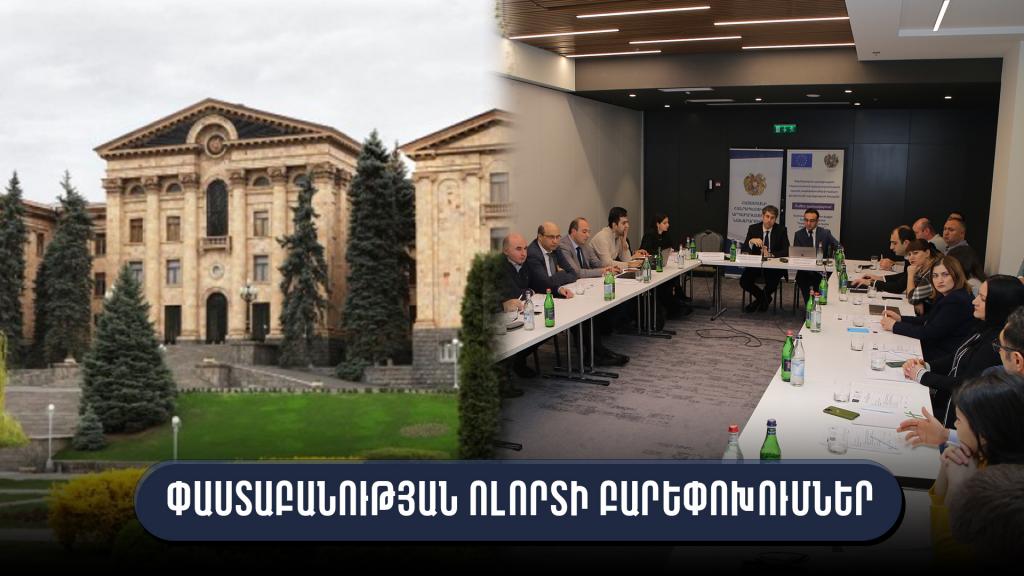The law "On Advocacy" will expand the range of beneficiaries of public defender services, a disciplinary commission will be created. The draft was adopted during its first reading.
20/09/2022

The law "On Advocacy" will expand the range of beneficiaries of public defender services, a disciplinary commission will be created for that purpose. The draft was adopted during its first reading.
During a first reading, the National Assembly adopted the set of drafts authored by the Government "On Amendments and Supplements to the Law on Advocacy" and "On Amendments to the Criminal Code", which are aimed at reforming the advocacy system.
The draft proposes a certain revision of the internal management structure of the Chamber of Advocates, as a result of which it is planned to create a new specialized institution i.e. the Disciplinary Commission, which will have the authority to examine cases regarding disciplinary action of advocates (defense attorneys), which will enable to ensure the most appropriate examination of such cases. A bi-level system of examining disciplinary cases is also planned, as it will be possible to appeal the decisions of the disciplinary commission to the council of the Chamber of Advocates.
It is planned to expand the powers of the council, especially in the field of public defenders e.g. when appointing the head of the public defender's office, each member of the board will have the right to nominate their own candidate, the council will be empowered to set annual performance indicators for the public defender's office, to review and evaluate the performance of public defenders. Following the same principle, the management system of the School of Advocates is also being reviewed, meaning the director will be appointed on the principle of nomination by all members of its management council.
In order to ensure the effectiveness of the activities of the institutions of the Chamber of Advocates, requirements for the incompatibility of the members of these bodies are also provided, when a member of one institution or an official of the Chamber will not be able to hold office in another institution of the Chamber simultaneously. Requirements for the president of the chamber and members of the council to demonstrate political neutrality and restraint are defined.
The envisaged requirements will contribute to the strengthening of the professional independence of advocacy.
The next important direction proposed by the project concerns the development of free and pro bono legal aid. In particular, it is proposed to expand the range of beneficiaries of public defense, providing also:
- Foreign citizens, in cases of appealing decisions on deportation,
- Persons who are subject to proceedings on recognizing them as incompetent or partially competent, recognizing a citizen who had previously been recognized as incompetent as competent or eliminating restrictions on a competency
- Victims, if the latter are mandatorily recruited military-men or children under the age of 16.
At the same time, incentives are provided for attorneys who voluntarily provide legal aid to individuals, as well as voluntary accountability and facilitation of such aid.
The draft also proposes changes aimed at revising the qualification procedure for advocates. In contrast to the current procedure, when only persons who have received the appropriate training at the School of Advocates can participate in the qualification exams, the draft stipulates that the following persons will also be able to participate in the lawyer's qualification exam without having attended the School of Advocates:
- Persons simultaneously possessing Bachelor of Law and Master of Law qualifications, or persons with a qualified degree of higher education of a certified specialist in law and at least seven years of professional experience as a lawyer,
- Persons with at least five years of advocate experience, as well as at least five years of professional experience as an investigator, prosecutor or judge, or persons with a candidate of legal sciences or doctorate degree.
The project was developed and submitted to a broad consensus with the advocate community.


